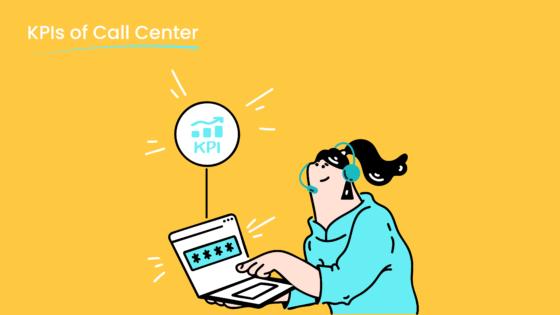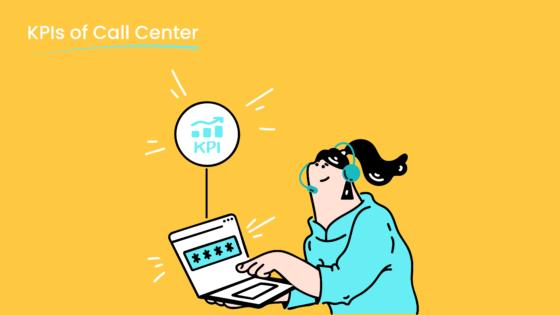Which empathy training for customer service really works best

Recent industry research shows that empathy training for customer service delivers impressive results. Programs focusing on empathy, such as active listening and emotional understanding, help agents build strong customer relationships. Companies see higher customer satisfaction and loyalty scores when they use role-playing and ongoing coaching. Studies reveal that emotionally engaged customers are three times more likely to recommend a brand and keep buying from it. Sobot AI and Sobot call center solutions use these proven empathy training for customer service strategies to help businesses boost customer service quality and retention.
Top Empathy Training for Customer Service

Quick Comparison Table
| Program | Effectiveness | Key Features | Best For |
|---|---|---|---|
| Bonfire Training | High | Role-play, active listening, emotional intelligence | Midsize to large teams |
| Dale Carnegie | High | Customer-centric culture, leadership focus | All business sizes |
| EasyLlama | Moderate | Microlearning, compliance, scenario-based modules | Small to midsize teams |
| Udemy (Free Empathy Training Courses) | Varies | Self-paced, wide selection, affordable/free | Individuals, small teams |
| Sobot Voice/Call Center Solution | High | AI-driven empathy, omnichannel, real-time analytics | All business sizes |
Note: Effectiveness ratings reflect industry reviews and customer feedback.
Key Features Overview
Empathy training for customer service stands out when it focuses on real-world skills and measurable results. The best empathy training programs share several important features:
- They prioritize active listening, emotional intelligence, and relatable communication. These skills help agents connect with customers and improve the overall experience.
- They foster a customer-centric culture. This approach increases customer satisfaction and loyalty.
- Agents learn to paraphrase, clarify, and validate customer feelings. This training builds trust and helps resolve conflicts.
- Programs address high employee turnover by empowering agents emotionally. This leads to higher job satisfaction and retention.
- Empathy training helps teams overcome communication barriers. It turns low customer satisfaction into opportunities for growth.
- Leading solutions, like Sobot, integrate real-time support tools and AI-driven insights. These features blend technology with a human touch, creating a richer customer experience.
- The best empathy training for customer service balances automation with personal communication. This balance keeps customer trust strong.
Sobot’s Voice/Call Center solution delivers empathy training through AI-powered voicebots, unified workspaces, and omnichannel support. Agents receive real-time feedback and analytics, which helps them personalize every customer interaction. Sobot’s platform supports global teams and offers free empathy training courses for ongoing skill development. This approach ensures every customer receives a positive, empathetic experience.
Free empathy training courses on platforms like Udemy give individuals and small teams a flexible way to build empathy skills. These courses cover active listening, emotional intelligence, and customer experience basics. Companies can use these resources to supplement formal empathy training programs.
Empathy training for customer service creates value by improving customer experience, increasing loyalty, and supporting agent well-being. Businesses that invest in empathy training see measurable gains in CSAT, NPS, and first-contact resolution rates.
What Makes Empathy Training Effective
Evaluation Criteria
Organizations use clear standards to judge the success of empathy training in customer service. These standards help leaders see if training programs truly improve the customer experience and agent performance. The most common evaluation criteria include customer satisfaction, first call resolution, customer retention, and emotional intelligence assessments. The table below summarizes these criteria, their impact, and best practices for implementation:
| Evaluation Criteria | Description | Impact on Customer Service Effectiveness | Best Practices for Implementation |
|---|---|---|---|
| Customer Satisfaction (CSAT) | Measures customer happiness with service; improvements indicate better emotional connection | 10-15% average improvement within 3-6 months | Regular feedback, role-playing, focus on empathy |
| First Call Resolution (FCR) | Tracks issue resolution on first contact; higher rates reduce frustration | 5-10% average improvement within 6-12 months | Active listening training, improved problem-solving skills |
| Customer Retention | Reflects long-term loyalty and relationship strength | 2-5% average improvement over 12+ months | Building rapport, personalized communication |
| Behavioral Assessments | Simulated scenarios to evaluate EI application under pressure | Provides baseline and progress tracking of EI skills | Use realistic workplace scenarios |
| 360-Degree Feedback | Collects input from peers, supervisors, and customers | Offers holistic view of EI capabilities | Incorporate feedback from multiple sources |
| Standardized EI Tests | Established tests measuring facets of emotional intelligence | Quantifies EI baseline and development | Use validated EI assessment tools |
| Performance Reviews | Integrates EI competencies into evaluations | Recognizes and rewards demonstration of empathy and EI | Include EI in regular performance appraisals |
| Continuous Feedback | Ongoing guidance highlighting strengths and improvement areas | Reinforces learning and skill application | Provide regular, constructive feedback |
Empathy training programs that use these criteria often see strong results. Sobot, for example, uses real-time analytics and AI-powered feedback to track agent progress in active listening and communicating with empathy. This approach helps teams measure growth and adjust training for better customer interactions.
Measurable Outcomes for Customers
Empathy training leads to clear, measurable gains in customer service. After companies introduce empathy-focused training, customer satisfaction scores often rise from 82% to 88% or higher. Net Promoter Scores also improve, moving from +35 to +45 or above. These numbers show that customers feel heard and valued during their interactions. Higher satisfaction and loyalty follow, which boosts customer retention and business growth. Sobot’s omnichannel solutions support these outcomes by giving agents tools to personalize every customer interaction and respond with empathy across all channels.
Organizations also look at scalability and real-world application. They gather feedback from agents and customers, use AI tools to analyze emotional cues, and update training content regularly. Modular training and blended learning help programs grow with business needs. Sobot’s unified workspace and AI-driven insights make it easy for teams to apply empathy skills in daily customer interactions, ensuring every customer receives a positive experience.
Reviews of Leading Empathy Training Programs
Bonfire Training
Bonfire Training stands out for its focus on practical empathy skills in customer service. The program uses interactive workshops and scenario-based learning to help agents develop emotional intelligence and active listening. Trainers guide participants through real-world situations, teaching them to recognize and respond to customer emotions.
Key Features:
- Emphasis on reducing compassion fatigue among agents.
- Role-playing exercises that simulate challenging customer service interactions.
- Tools for building emotional resilience and maintaining a positive attitude.
Pros:
- Boosts employee morale and engagement.
- Strengthens company reputation through improved customer experiences.
- Increases customer satisfaction by teaching agents to connect on a personal level.
- Reduces employee absenteeism by addressing emotional burnout.
Cons:
- May require significant time investment for full team participation.
- Best suited for midsize to large teams with dedicated training budgets.
Businesses using Bonfire Training have reported improved employee morale, enhanced company reputation, increased customer satisfaction, and reduced absenteeism. These results come from the program’s focus on empathy and emotional support for agents.
Dale Carnegie
Dale Carnegie’s empathy training for customer service combines live instruction with self-paced learning. The course structure includes a 3-hour program split between 90 minutes of live online teaching and 90 minutes of self-directed study. Trainers use a proven 7-step complaint resolution process, helping agents turn complaints into opportunities.
Main Components:
- Focus on understanding the root causes of customer complaints.
- Techniques for managing both emotional and logical aspects of service.
- Emphasis on maintaining a positive attitude and listening with empathy.
- Stress and emotion management strategies.
- Delivered by experienced, ISO9002-certified trainers.
Unique Selling Points:
- Blend of instructor-led and self-directed learning for lasting behavior change.
- Role-playing and active listening exercises to build empathy.
- Trainers with real-world customer service success.
Impact Measurement:
- Progress tracked through social learning and in-the-moment coaching.
- Accountability for commitments and visible improvements in customer retention and loyalty.
- Thousands of testimonials support the effectiveness of the methodology.
Pros:
- Builds strong interpersonal and communication skills.
- Helps agents manage stress and resolve conflicts.
- Encourages a customer-centric mindset.
Cons:
- May not fit all learning styles due to the blend of live and self-directed formats.
- Requires commitment to complete both parts of the course.
EasyLlama
EasyLlama offers microlearning modules designed for quick, accessible empathy training. The platform uses scenario-based content to teach agents how to handle real customer service situations with empathy and professionalism.
Key Features:
- Short, interactive lessons that fit into busy schedules.
- Compliance-focused content for regulated industries.
- Scenario-based modules that reflect common customer service challenges.
Pros:
- Flexible and easy to implement for small to midsize teams.
- Engaging content that keeps learners interested.
- Affordable pricing for businesses with limited budgets.
Cons:
- Less depth compared to longer, instructor-led programs.
- May not provide enough practice for complex empathy skills.
EasyLlama’s approach helps agents build empathy and active listening skills quickly. Many companies use it as a supplement to more comprehensive training programs.

Sobot Voice/Call Center Solution
Sobot Voice/Call Center Solution delivers a modern approach to empathy training in customer service. The platform integrates AI-powered tools that help agents recognize and respond to customer emotions in real time. Sobot’s solution supports omnichannel communication, allowing agents to deliver consistent empathy across voice, chat, email, and social media.
Features and AI-Driven Insights:
- AI-powered voice analysis detects emotional states, enabling agents to tailor their responses.
- The AI Copilot provides real-time suggestions and post-conversation summaries, guiding agents toward empathetic communication.
- Intelligent IVR and Voicebot features allow customers to resolve issues quickly, reducing frustration and wait times.
- Unified workspace gives agents access to customer history and preferences, supporting personalized service.
- Administrators receive customer insights, trend forecasting, and quick report generation for better team management.
How Sobot Improves Outcomes:
- Up to 30% increase in customer loyalty through personalized, empathetic interactions.
- Enhanced first contact resolution rates by equipping agents with emotional recognition tools.
- Improved operational efficiency with AI-driven recommendations and workflow automation.
Pros:
- Seamless integration with existing CRM and business systems.
- Scalable for businesses of all sizes, from startups to global enterprises.
- High system uptime (99.99%) ensures reliable customer service.
Cons:
- Requires initial setup and training for agents to maximize AI features.
Sobot’s Voice/Call Center Solution stands out by blending empathy training with advanced technology. The platform empowers agents to deliver empathy in every customer service interaction, supported by real-time analytics and AI-driven insights. This approach leads to measurable gains in customer satisfaction and loyalty.
Udemy
Udemy provides a wide range of empathy training courses for customer service professionals. The platform offers both free and paid options, making it accessible to individuals and small teams.
Key Features:
- Self-paced courses covering empathy, active listening, and customer experience fundamentals.
- Video lectures, quizzes, and downloadable resources.
- Wide selection of topics and instructors.
Pros:
- Affordable or free options for budget-conscious learners.
- Flexible learning that fits any schedule.
- Useful for onboarding new agents or supplementing existing training.
Cons:
- Quality varies between courses and instructors.
- Lacks the interactive, real-world practice found in instructor-led programs.
Udemy’s courses help agents build foundational empathy skills. Many businesses use these resources to introduce empathy concepts before moving to more advanced training.
Tip: When selecting a Udemy course, review ratings and feedback to ensure the content matches your team’s needs.
Summary Table:
| Program | Best For | Empathy Focus | Technology Integration | Real-World Results |
|---|---|---|---|---|
| Bonfire Training | Midsize to large teams | High | Low | Improved morale, reputation, satisfaction |
| Dale Carnegie | All business sizes | High | Moderate | Higher retention, loyalty, stress mgmt |
| EasyLlama | Small to midsize teams | Moderate | Moderate | Quick skill-building, compliance |
| Sobot Voice/Call Center Solution | All business sizes | High | High | 30% loyalty boost, higher FCR, efficiency |
| Udemy | Individuals, small teams | Varies | Low | Flexible, foundational skills |
Each program addresses empathy in customer service differently. Bonfire and Dale Carnegie focus on deep, instructor-led learning. EasyLlama and Udemy offer flexible, self-paced options. Sobot Voice/Call Center Solution stands out by combining empathy training with AI and omnichannel support, helping agents deliver empathy in every customer service interaction.
Choosing the Right Empathy Training
Matching to Customer Needs
Selecting the right empathy training starts with understanding the unique needs of the customer service team. Every customer expects to feel valued and understood. Companies should first assess their customer service goals. Some focus on increasing customer satisfaction, while others want to reduce response times or improve loyalty.
A small business with a tight budget may benefit from flexible, self-paced empathy training. These programs help agents learn the basics of communicating with empathy and active listening. Larger organizations often need structured workshops or AI-powered solutions that scale across global teams. For example, Sobot’s Voice/Call Center Solution uses AI to analyze customer emotions in real time. This helps agents adjust their approach and deliver empathy during every interaction.
Empathy training programs use methods like role-playing, scenario-based learning, and emotional intelligence development. These approaches help agents see situations from the customer’s perspective. Companies that invest in ongoing empathy workshops see higher customer retention and stronger relationships. According to a Forrester report, brands that excel at empathy can increase customer loyalty by up to 30%.
Tip: Regularly review customer feedback and satisfaction scores to measure the impact of empathy training.
Industry and Team Fit
Empathy training must fit both the industry and the team profile. Different industries face unique customer challenges. Retail teams often handle high volumes of customer inquiries and need quick, empathetic responses. Healthcare teams must address sensitive issues and provide reassurance. Financial services require clear, trustworthy communication to build customer confidence.
Empathy training adapts to these needs by focusing on relevant scenarios. For example:
- Retail: Scenario-based modules teach agents to handle complaints and returns with empathy.
- Healthcare: Workshops focus on listening skills and emotional support for anxious customers.
- Financial services: Training emphasizes trust-building and clear explanations.
Team dynamics also matter. Leadership-focused empathy training boosts engagement and collaboration. Programs that foster safe, inclusive environments help agents feel motivated and supported. Sobot’s omnichannel solution supports diverse industries by unifying customer data and providing AI-driven insights. This enables agents to personalize every customer interaction, no matter the channel or team size.
Sobot’s platform integrates seamlessly with existing systems, making it easy for teams to adopt empathy training without disrupting daily operations. The unified workspace and real-time analytics help managers track progress and adjust training as customer needs evolve.
Note: Customizing empathy training ensures that every customer receives consistent, high-quality service, regardless of industry or team structure.
Real-World Results for Customer Service

Case Studies
Many organizations have transformed their customer experience by prioritizing empathy in customer interactions. Zappos, for example, empowers representatives to spend as much time as needed with customers. Agents often engage in long, friendly conversations, which builds strong loyalty and trust. Marriott takes a different approach by training staff to anticipate and respond to guests’ emotional needs. Staff members remember guest preferences and offer personalized greetings, which enhances the overall customer experience.
Research highlights the impact of empathy training on measurable outcomes. Companies that embed empathy into their service culture see a 35% increase in customer satisfaction. When agents demonstrate genuine empathy during calls, customers report higher satisfaction and are more likely to return. Empathy also improves First Call Resolution rates. Open communication leads to a 20% average increase in CSAT scores when agents resolve issues on the first contact. These improvements reduce escalations, shorten call durations, and lower stress for both customers and agents.
Sobot’s omnichannel solution delivers similar results. By integrating AI-driven empathy training, Sobot helps agents recognize emotions and personalize every customer interaction. Businesses using Sobot report higher customer satisfaction, improved efficiency, and stronger customer loyalty.
Customer Testimonials
Customers consistently share positive feedback after experiencing empathy-driven service. Many say that agents now interpret unspoken needs through tone and body language, leading to faster conflict resolution. Customers feel understood and supported, which reduces emotionally charged incidents and increases retention. Employees also benefit. They report less stress and emotional exhaustion, which creates a more collaborative work environment.
Testimonials from companies using empathy training programs reveal significant gains. Customers perceive genuine empathy, which reduces frustration and escalations. Companies like Zappos and Ritz-Carlton have achieved high repeat customer rates and lower employee turnover by investing in empathy training. Many organizations see CSAT improvements of 15-25% within six months and a 20-40% increase in customer lifetime value. Sobot’s clients highlight the platform’s ability to deliver consistent, empathetic customer interactions across all channels, driving measurable business growth and satisfaction.
Empathy training for customer service drives real business results. Programs like Sobot’s Voice/Call Center Solution help agents deliver faster, more personalized support. Well-trained teams build trust, resolve issues quickly, and increase customer loyalty. Key benefits include:
- Higher customer satisfaction and repeat business
- Improved agent morale and retention
- Stronger emotional connections with customers
Companies should review their goals and choose proven empathy training for customer service. Investing in solutions like Sobot ensures lasting improvements in both customer experience and business performance.
FAQ
What is empathy training for customer service?
Empathy training for customer service teaches agents to understand and respond to customer emotions. This training uses real-world scenarios, role-playing, and feedback. Companies see higher customer satisfaction and loyalty when agents use empathy in every interaction.
How does Sobot support empathy training for customer service?
Sobot provides AI-powered tools that help agents recognize customer emotions in real time. The Sobot Voice/Call Center Solution offers unified workspaces, analytics, and omnichannel support. These features make empathy training for customer service more effective and measurable.
Why is empathy training for customer service important?
Empathy training for customer service improves customer satisfaction scores by up to 35% (Forrester). Agents who show empathy resolve issues faster and build trust. This leads to higher retention and positive brand reputation.
Can empathy training for customer service be measured?
Yes. Companies track metrics like CSAT, Net Promoter Score, and first contact resolution. Sobot’s analytics dashboard helps managers see improvements after empathy training for customer service. Real-time feedback and customer surveys provide clear results.
Who benefits most from empathy training for customer service?
All industries benefit, including retail, finance, and education. Teams using Sobot’s solutions report higher efficiency and better customer experiences. Empathy training for customer service helps both new and experienced agents connect with customers and solve problems quickly.
See Also
Effective Strategies To Enhance Customer Satisfaction In Live Chat
Ways AI-Powered Customer Service Tools Improve Operational Efficiency
Artificial Intelligence Agents Transform The Future Of Customer Support
Leading Customer Service Software Solutions To Watch In 2024